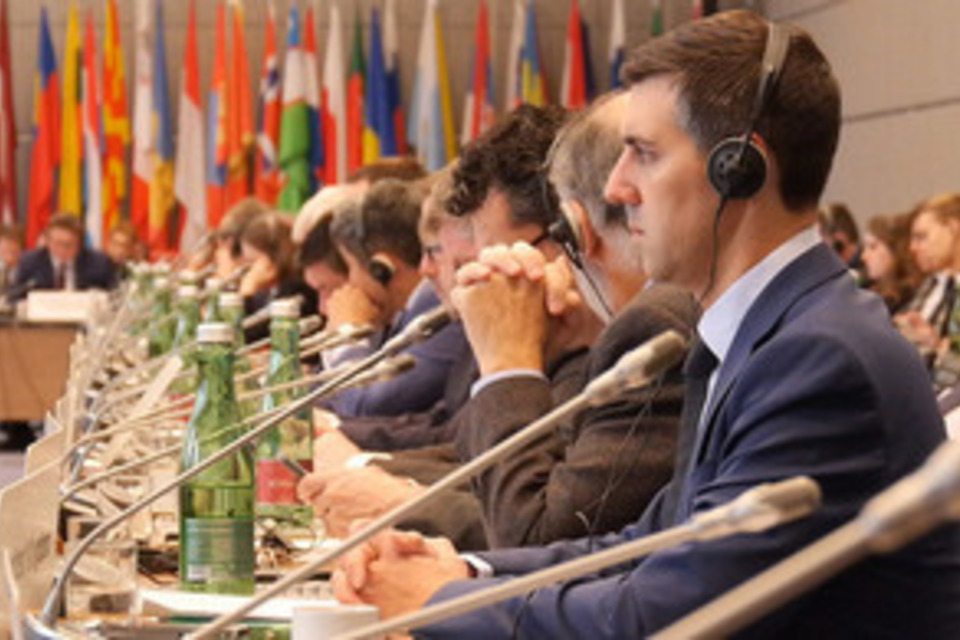OSCE Representative on Freedom of the Media: UK response
Ambassador Neil Bush thanks RFoM, Ms Teresa Ribeiro, for her description of trends and for her support to OSCE states to protect and promote media freedom.

Madam Chair, I wish to thank the Representative on Freedom of the Media (RFoM), Ms Teresa Ribeiro, for her report. Teresa - many thanks for the helpful and clear description of the trends in the OSCE region and, by extension, the challenges you face in helping participating States protect and promote media freedom. As mentioned in your remarks today, you are here to support us as participating States to meet our OSCE principles and commitments.
Media freedom and ensuring the safety of journalists remains a priority for the UK. Media freedom is a cornerstone of democracy - essential for holding governments to account. We believe that people must be able to discuss and debate issues freely, to challenge their governments, and to make informed decisions, supported by access to information provided by a strong, robust and independent media.
The UK welcomes your transparency in describing the manner in which you will work to deliver against your mandate. We agree with your emphasis on a sustained, focussed and tailored approach, with public interventions on individual cases where required, but without losing sight of your overall objective on concrete progress on media freedom across the OSCE region.
As you recognise in your report, different cases have different backgrounds and demand different responses. We share your concern about the shrinking space for media in Belarus and also underline your concerns on Russia on the labelling of foreign agents, on judicial abuse and legal harassment, and the abuse faced by journalists during public gatherings in support of Navalny.
Many of those and other concerns in the report are shared by the UK. We understand why you describe the current media landscape in the OSCE region as “bleak”, with a shrinking space for media freedom. The safety of journalists, both online and offline, remains a real concern, with the online safety of female journalists a particular concern. We are grateful for the work done already in creating the Safety of Female Journalists Online Resource Guide, and commend the Guide’s recent publication in Serbian and Russian languages.
We also agree that disinformation is a problem, and merits increased attention. Given the public harm that can be caused by disinformation, it is important that we fully understand the challenges around tackling malign foreign interference, safeguarding our elections, responding to disinformation and information manipulation and engaging with social media platforms.
Madam Chair, we have all freely signed up to a series of OSCE commitments on media freedom and freedom of expression. It is important that every participating State offers the direct, open and productive contacts that the RFoM requires. The Representative’s future success will depend on the actions and reactions of us participating States.
As we said in our statement last week to commemorate World Press Freedom Day, whilst the UK is determined to protect and promote media freedom globally, we also recognize there are areas for improving our domestic media environment – which we are committed to doing.
We appreciate that any open and genuine dialogue will include challenging discussions on difficult subjects, such as the tragic killing of Lyra McKee. Where appropriate, we aim to share examples of best practice and lessons learned - including at next week’s Stockholm Media Freedom Conference, where we will share our National Action Plan on Safety of Journalists.
Madam Chair, the RFOM is a critical institution for the OSCE region. It is important its mandate is implemented in an impartial, independent and objective manner. We thank you, Teresa, for your efforts since assuming your mandate and offer you, and your staff, full support in the months ahead.